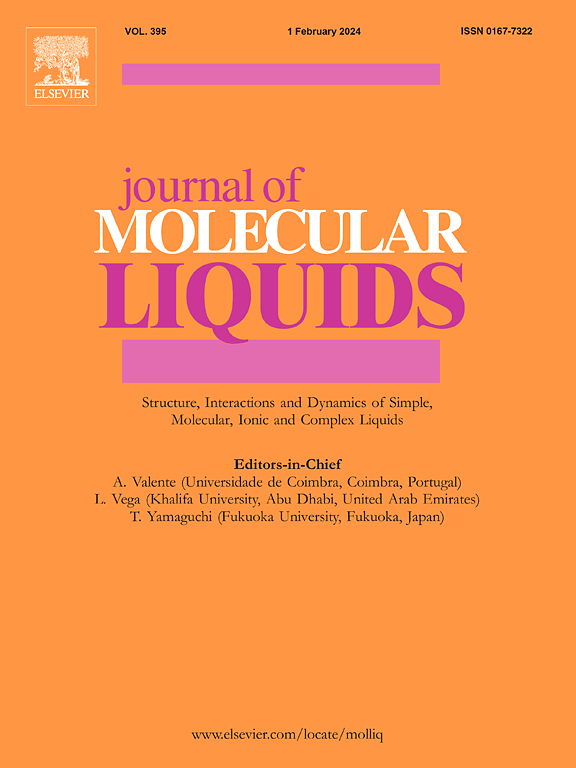Impact of viscous dissipation on heat transfer and drag in polymeric non-Newtonian flow over a shrinking surface: Dual solution analysis
IF 5.3
2区 化学
Q2 CHEMISTRY, PHYSICAL
引用次数: 0
Abstract
This study conducts a comprehensive analysis of the role of polymers in boundary layer flow and heat transfer of non-Newtonian fluids over a shrinking surfaces, considering viscous dissipation effects. Governing equations are transformed into a similar form, and numerical solutions reveal the impact of polymers, mass suction, and viscous dissipation on drag and heat transfer near the surface. Visual representations highlight the findings, notably identifying dual solutions within a specific range of the mass suction parameter. Polymer concentration, viscous dissipation, fluid properties, and stretching/shrinking surface parameter significantly affect heat transfer rates and skin friction. The presence of polymers over shrinking surface shows opposite effects on drag coefficient in both the branches. The exploration of dual solutions and their impact on drag coefficient and heat transfer is emphasized as the novel aspect of this work.
粘滞耗散对收缩表面上聚合物非牛顿流体传热和阻力的影响:双溶液分析
本研究综合分析了聚合物在非牛顿流体在收缩表面上的边界层流动和传热中的作用,并考虑了粘性耗散效应。控制方程被转换成类似的形式,数值解揭示了聚合物、质量吸力和粘性耗散对表面附近阻力和传热的影响。视觉表现突出了研究结果,特别是在质量吸力参数的特定范围内识别双重解。聚合物浓度、粘性耗散、流体性质和拉伸/收缩表面参数显著影响传热速率和表面摩擦。聚合物在收缩表面上的存在对两个分支的阻力系数显示相反的影响。对偶解的探索及其对阻力系数和传热的影响被强调为这项工作的新方面。
本文章由计算机程序翻译,如有差异,请以英文原文为准。
求助全文
约1分钟内获得全文
求助全文
来源期刊

Journal of Molecular Liquids
化学-物理:原子、分子和化学物理
CiteScore
10.30
自引率
16.70%
发文量
2597
审稿时长
78 days
期刊介绍:
The journal includes papers in the following areas:
– Simple organic liquids and mixtures
– Ionic liquids
– Surfactant solutions (including micelles and vesicles) and liquid interfaces
– Colloidal solutions and nanoparticles
– Thermotropic and lyotropic liquid crystals
– Ferrofluids
– Water, aqueous solutions and other hydrogen-bonded liquids
– Lubricants, polymer solutions and melts
– Molten metals and salts
– Phase transitions and critical phenomena in liquids and confined fluids
– Self assembly in complex liquids.– Biomolecules in solution
The emphasis is on the molecular (or microscopic) understanding of particular liquids or liquid systems, especially concerning structure, dynamics and intermolecular forces. The experimental techniques used may include:
– Conventional spectroscopy (mid-IR and far-IR, Raman, NMR, etc.)
– Non-linear optics and time resolved spectroscopy (psec, fsec, asec, ISRS, etc.)
– Light scattering (Rayleigh, Brillouin, PCS, etc.)
– Dielectric relaxation
– X-ray and neutron scattering and diffraction.
Experimental studies, computer simulations (MD or MC) and analytical theory will be considered for publication; papers just reporting experimental results that do not contribute to the understanding of the fundamentals of molecular and ionic liquids will not be accepted. Only papers of a non-routine nature and advancing the field will be considered for publication.
 求助内容:
求助内容: 应助结果提醒方式:
应助结果提醒方式:


